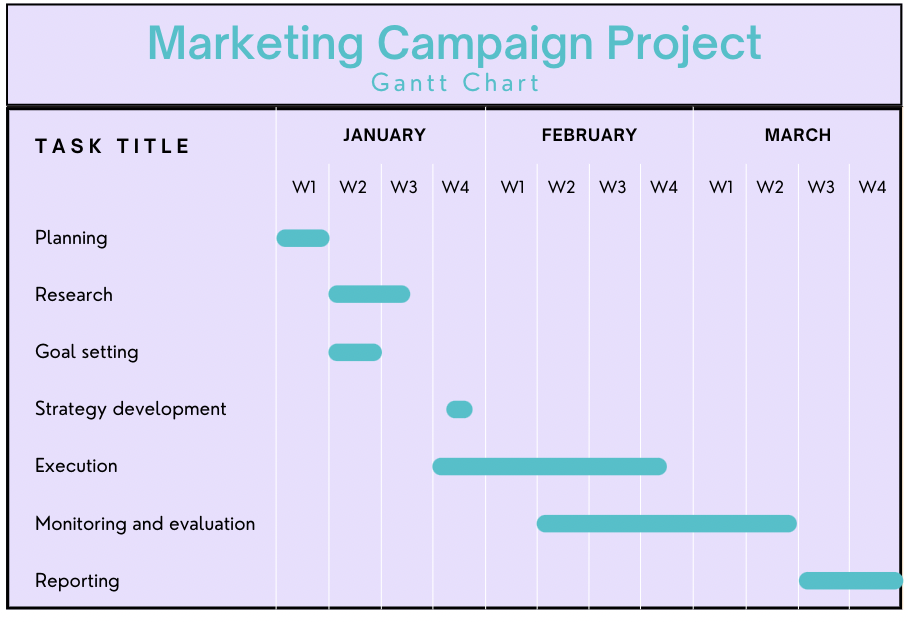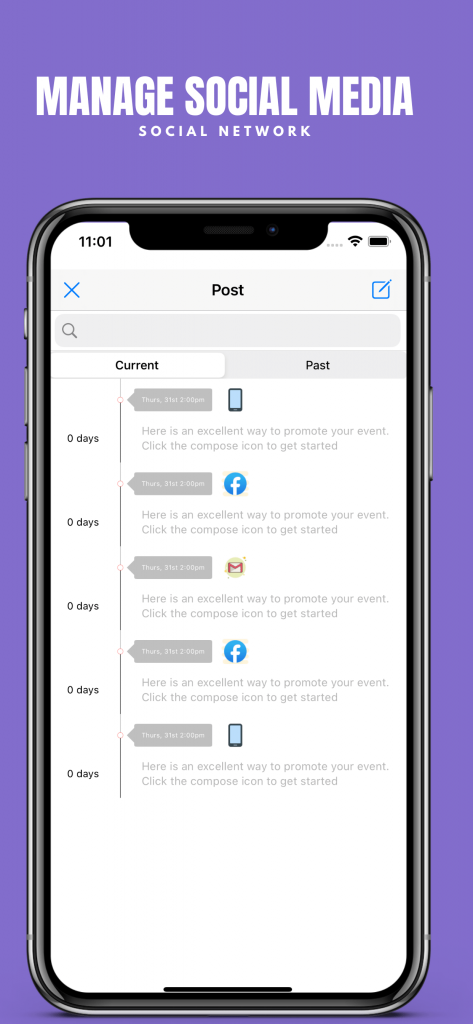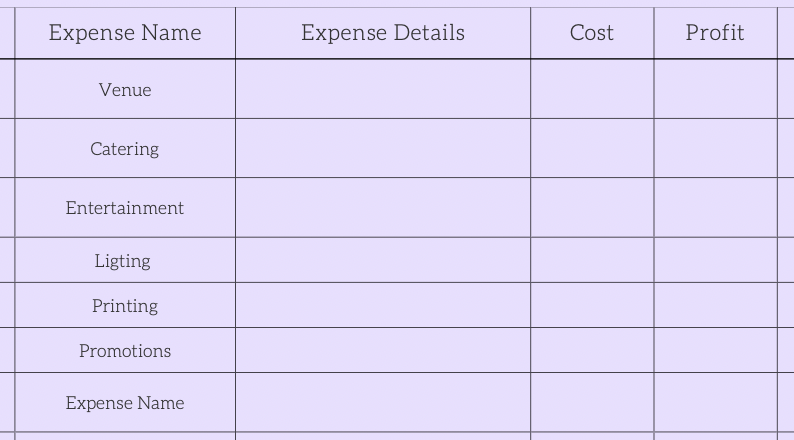Want to plan an event, but confused about where to start or what to do? Fear not, we have got you covered. In this blog, we provide a quick guide on how to host a successful event, things to include in your event planner and an event planning template at the end.

Behind every successful event, is a great event planner, a great team and a good plan. Planning an event can be challenging, time-consuming and requires effort but, in the end, seeing your event go from idea to reality is extremely rewarding. To make event planning easy for you we have designed the ultimate blog post where we discuss everything you need to know about event planning.
What is Event Planning?
Before diving into the core details of this blog, we need to address the elephant in the room. What is event planning? Event planning is the process of coordinating activities relating to hosting an event. These activities may include procurement, advertising, sales and much more. The event planning process usually follows the same theme depending on the size or type of event (e.g., festivals, concerts, parties and conferences) and is vital towards having a successful event.
What do you need to include in your event plan?
About Your Event
The first item in your event planning template should be a section describing your event. As an event organiser you need to ask yourself the following questions; Why am I organising this event? Who is it aimed at? What are your objectives for this event and what is the end goal?
While noting this you need to make sure your event has a unique selling point (USP), something that sets your event apart from the rest of the events out there. This might be a unique experience, design, location, music or atmosphere. Having a USP and understanding your event will enable you to market your event better and have some ideas of what you need to do to host a successful event.
Event Target Audience
Who is your audience? Are they university students, investors, adults, or children?
This may have been converted in the previous section, here you need to expand on that.
Identifying who exactly your audiences are is a great start in ensuring you can cater to their exact needs, likes, dislikes and interests. Throughout the entire event planning process, you must always consider your target audience. This would help to prevent you from making any choices or decisions that will be unsuitable for your audience.
Marketing Timeline
The next item in your event planning template is your marketing timeline. Marketing is VITAL for your event to be successful! But most importantly the order of time in which all your marketing will be carried out. A Gantt chart/timeline will allow you to visualise and map out all of your marketing objectives and goals and help you ensure you are on track to get things done on time. You have to ensure that you are heavily promoting your events across all social media platforms way ahead of the actual event, this will help ensure your event reaches your intended audience.
But you also need to be careful of how and when you promote your marketing materials as this is what will influence the decision of your audiences and persuade them whether or not they will show interest in your event or not. Not only that but by having a timeline you will be able to efficiently track and manage the process of your campaign to ensure everything is running smoothly and if any necessary changes need to be made.
Here Is an example of what your marketing Gantt chart may look like:

Another great tool to use to manage your social media campaign is the Quest Creator app, it’s free and allows you to schedule Facebook posts, tweets, Instagram, push notifications to previous attendees and much more. The best part, it’s free.

Platform Selection
The next step in your event planning template process is to choose where and how you’ll be selling your tickets. Some event organisers opt to sell their tickets offline but a majority sell their tickets online. This allows attendees to buy tickets whenever and at their convenience. We’ve made a blog covering the top event management platform, but here’s a quick rundown:
Quest Creator: This site is number one on our list for its features, insight sponsorship and more. Besides the ability for event organisers to manage events and sell tickets, the site allows organisers to get key insights about attendees, sponsorship capability and the ability to manage social media posts across Twitter, Facebook, email and user devices.
Cvent: Cvent event management software is one of the leading event management software providers providing a comprehensive suite of solutions. It aims to simplify the entire event management process to maximise the event’s impact. Its strength lies in its features ranging from registration, promotion, workflow, insight and experience in the event sector.
Meetup: Meetup event management software prides itself as a platform for finding and building local communities. Event organisers use it to manage closed or small-sized events. It’s perfect for business events, sports events, societies and similar-sized events. Why is it on our best event management list? We believe it’s an excellent tool for the closed-nit event.
Ticketsource: Ticketsource event management software is a box-office event management system provider based in Wales. The company prides itself on being easy to use and free for any type of event (if your event is free). Its strength lies in its origin in theatres, where organisers can sell tickets, allocate ticketing, choice of ticket format and integrate for promotions (e.g. Mailchimp).
Event Cost
Time to talk money. It is time for the financial side of event planning. Events cost money and not budgeting appropriately may end up with you overspending and running the event at a loss. As an event organiser, you need to find out the cost of each item on your to-do list e.g. marketing, venue, catering and much more. This way you know how much to price your tickets and the number of attendees needed to break even.
Here is a brief example of what your event cost and budget should look like in your event planning template may look like:

Team Roles and Responsibilities
The next item that should be addressed in your event planning template is “roles and responsibilities”. To work effectively as a team everyone must be assigned a role alongside all of their responsibilities. It is key that everyone is aware of what is expected from them during the entire event planning process.
There are lots of roles one may be assigned, examples include:
Project Manager: They will be generally responsible for managing the entire event and overlooking everything to make sure everything is in order.
Individual(s) responsible for the main actual event: These people will be in charge of the actual event and everything that would be taking place on an actual day. They are the people who will be in charge of organising and preparing all the vendors, sponsors, staff and catering that will be used for the event. These individuals will be the main contact for all of these areas of the event.
Designers/creatives: These individuals will be responsible for all of the creativity and branding side of the event. They will most likely be preparing and creating all of the signages, event design materials and more.
Marketing And Communications: The team/people that will be working on the marketing and public relations side of the event will be overseeing the social media, media relations, branding, and advertising side making sure that the event is out there and ensuring people take an interest in it
Registration/Check-In: The individuals who will be working on the registration site for the event will be in charge of creating an efficient system where attendees can purchase tickets easily for the event. They will have to choose an event management software to work with, create and generate reports and make sure that the entire registration and ticket purchasing system that they have chosen is easy, simple and smooth to run.
Risk and Safety Plan
The last item that should be included in your event planning template is risk and safety.
No matter what event you are planning, event safety comes first! Event safety is crucial, we’ve made a blog on why this is. But as an event organiser, you need to consider all of the risks/factors that may impact your event i.e. things that could go wrong. Identifying problems early on will allow you to come up with contingency plans e.g. what will you do if there’s a fire? Are not making enough sales? A key member is sick? Event safety involves various issues that need to be dealt with in a certain way to ensure the safety of everyone involved.
Make sure that within your event planning template, you create a risk assessment. Conducting a risk assessment is an essential part of your event planning process, every factor needs to be taken into consideration and a backup solution should be created for each one if one doesn’t go to plan. It is your responsibility to assess every single hazard, or issue that could arise and come up with effective solutions on how you can mitigate/counteract them.
Some hazards/elements you may need to consider when performing a risk assessment could include:
- Venue
- Crowd Management
- Waste Management
- Staff
- First aid
- Fire
- Weather
Check out our ‘How To Ensure Event Safety’ blog post to read further and discover how you can maximise event safety and what you must consider when conducting a risk assessment.
Summary of Key Areas In Event Planning Template
There are several key elements of event planning. It is vital that as an event planner, you reach maximum success for your event you understand all the aspects you need to know when it comes to the planning of your event.
Here is a breakdown of all the key areas you must consider and prepare for:
- Event Overview And Event Description: Within this section of your event planning template, you should include your overall event details. This may include the event date, location, venue, and time of the event. This section may also include a description of your event and your USP.
- Event Objectives And Goals: What are your goals? What do you want to achieve by the end of the event? In this part of the event planning template, identify and note your event objectives. You need to set a list of objectives that you must complete in order to help you reach the end goal.
- Key Metrics And Key Performance Indicators: In this part of your event planning template, include some CSF (Critical Success Factors) and KPI (Key Performance Indicators) to track the growth and performance of your event. This is critical as this will allow you to monitor the event’s progress towards your objectives, and spot issues early to make adjustments.
- Target Audience: In this section of your event planning template, identify your target audience and who your event is aimed at. If you clarify your target audience at the start of your event planning process you will be able to plan and cater accordingly, preventing any mishaps and issues further down the line.
- Date: The date of the actual event is critical. You need to make sure you choose a suitable date and time for the event to accommodate the best you can for your target audience.
- Event Location: Your event needs a location/venue. It is essential that you choose the most suitable one for your target audience. For example, if your target audience is mostly university students, choose a venue near public transport, else the likelihood of attendance for your event may be low.
- Budget: Find out or estimate the total costs of your event and create a budget. This will help to ensure you understand where and what you are spending your money on. A budget will help you manage all your costs efficiently.
- Marketing: Once all the other elements are out of the way, it is time for the main part of the event planning process: marketing. You need to create effective marketing strategies to help get your event out there and spread the word. Your target audience needs to discover your product and the way you will do this is through a good marketing campaign for your event.
- Staff Roles And Responsibilities: Every successful event that you have heard about or attended has only ever been successful and worked out because of the teamwork and team effort all the staff have put in behind the scenes. It is not a one-man job, your event will need hardworking and trained volunteers and staff to help put your vision into action. This section of the event planning template will include details about all of the people that will be working during the process of the project and their roles and responsibilities that are expected from them.
- Gantt Chart/Timeline: Having a timeline in your event planning template will help you to stay organised and ensure every element of the entire planning process is carried out thoroughly and correctly within the correct timeframe. For example, on this timeline, you can ensure you map out everything you need to carry out i.e marketing, promotions, invitations, contacting/reaching out to vendors etc.
- Event Sponsors: Depending on your event type, you may have event sponsors. Event sponsors are an excellent way to achieve a powerful return on investment and a positive culture. Find out how to get event sponsors for your event.
- Entertainment: A very crucial part of the event planning process will involve the choice and type of entertainment you will choose for your event.
- Attendees: Last but most definitely not least the people the event is for! You will need to effectively plan the event to cater to your attendees/target audience to achieve the very best and most successful event.
- Risk Assessment: Within this section of the event planning template consider all the things that could wrong and how you will combat these problems. Identifying risks and finding solutions to mitigate or avoid them is an extremely crucial part of the event planning process.
Shall I reveal to you the secret behind successful event planning? An effective event planning template!
Want to download a free event planning template, click here!
Why Choose Quest Creator?
Let me introduce you to Quest Creator. Quest Creator is an events management software that helps event organisers manage events, sponsors, social campaigns, and sell tickets. Our system provides an end-to-end solution for managing events and maintaining a consistent message across your marketing channels. Quest Creator also allows organisers to get key insights about attendees, have sponsorship capability and the ability to manage social media posts across Twitter, Facebook, email and user devices. It is a self-serving platform that can be used globally and is super easy to navigate and use. If you are an event organiser and would like to work with us or find out more about Quest Creator then click here to speak to us or schedule a call.
Think you have what it takes now to run that event? Download your free event planning template today to help you plan your next event!